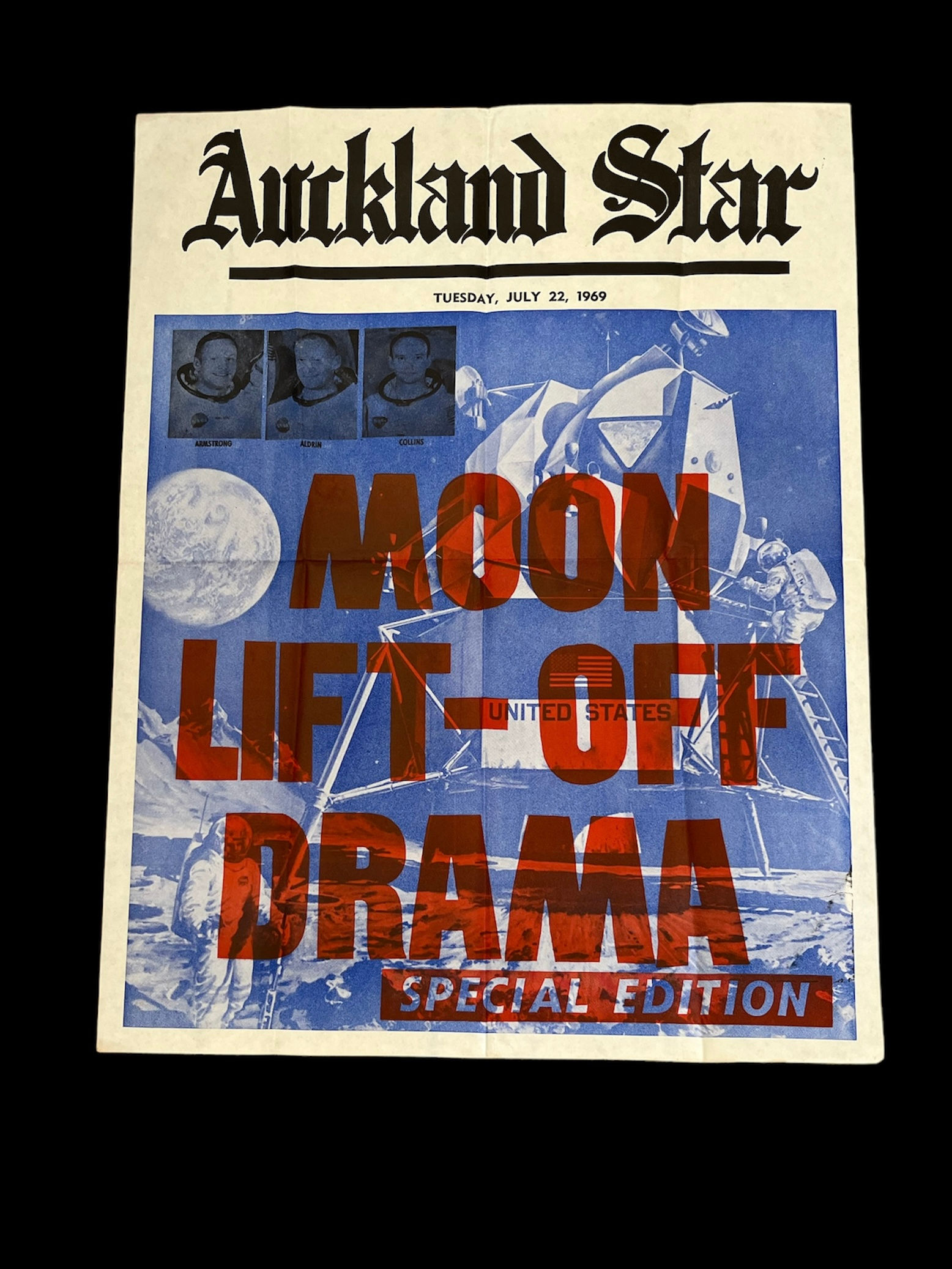PRODUCT DESCRIPTION :
Rare and original newspaper poster dated Tuesday July 22nd 1969 from the Auckland Star Newspaper depicting the historic day on which the Apollo lifts off from the Moon on it's journey back to Earth.
Showing a great image of the Apollo spacecraft along with Astronauts, moonscape and the Earth.
This Poster was produced in 1969 by the Auckland Star Newspaper to commemorate this truly historic occasion. It has been sitting in storage ever since then only to make this appearance 54 years later.
SIZE : 575mm x 445mm
CONDITION : Still showing very good colour., excellent overall condition for age.
Storage fold lines, minor edge creasing.
SHIPPING :
Worldwide available / Combined postage refunds avialble once ordered.
Some info :
Apollo 11 (July 16–24, 1969) was the spaceflight that first landed humans on the Moon. Commander Neil Armstrong and lunar module pilot Buzz Aldrin formed the American crew that landed the Apollo Lunar Module Eagle on July 20, 1969, at 20:17 UTC. Armstrong became the first person to step onto the lunar surface six hours and 39 minutes later on July 21 at 02:56 UTC; Aldrin joined him 19 minutes later. They spent about two and a quarter hours together outside the spacecraft, and collected 47.5 pounds (21.5 kg) of lunar material to bring back to Earth. Command module pilot Michael Collins flew the Command Module Columbia alone in lunar orbit while they were on the Moon's surface. Armstrong and Aldrin spent 21 hours, 36 minutes on the lunar surface, at a site they had named Tranquility Base upon landing, before lifting off to rejoin Columbia in lunar orbit.
Apollo 11 was launched by a Saturn V rocket from Kennedy Space Center on Merritt Island, Florida, on July 16 at 13:32 UTC, and it was the fifth crewed mission of NASA's Apollo program. The Apollo spacecraft had three parts: a command module (CM) with a cabin for the three astronauts, the only part that returned to Earth; a service module (SM), which supported the command module with propulsion, electrical power, oxygen, and water; and a lunar module (LM) that had two stages—a descent stage for landing on the Moon and an ascent stage to place the astronauts back into lunar orbit.
After being sent to the Moon by the Saturn V's third stage, the astronauts separated the spacecraft from it and traveled for three days until they entered lunar orbit. Armstrong and Aldrin then moved into Eagle and landed in the Sea of Tranquility on July 20. The astronauts used Eagle's ascent stage to lift off from the lunar surface and rejoin Collins in the command module. They jettisoned Eagle before they performed the maneuvers that propelled Columbia out of the last of its 30 lunar orbits onto a trajectory back to Earth. They returned to Earth and splashed down in the Pacific Ocean on July 24 after more than eight days in space.
Armstrong's first step onto the lunar surface was broadcast on live TV to a worldwide audience. He described the event as "one small step for [a] man, one giant leap for mankind." Apollo 11 effectively proved US victory in the Space Raceto demonstrate spaceflight superiority, by fulfilling a national goal proposed in 1961 by President John F. Kennedy, "before this decade is out, of landing a man on the Moon and returning him safely to the Earth."
Auckland Star Headline Newspaper Poster 1969 Moon Lift Off
Please note that the price shown excludes postage and NZ gst tax calculated at 15% of the total. These are shown during the checkout process. Thank you.

